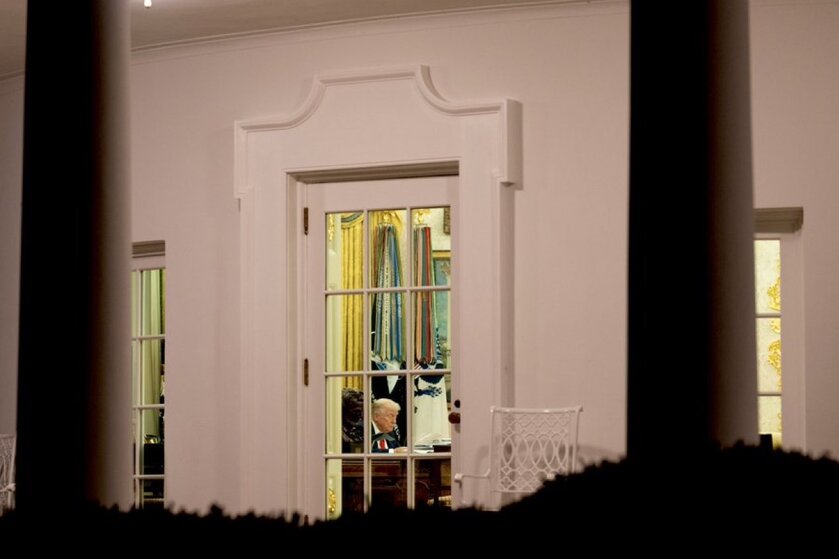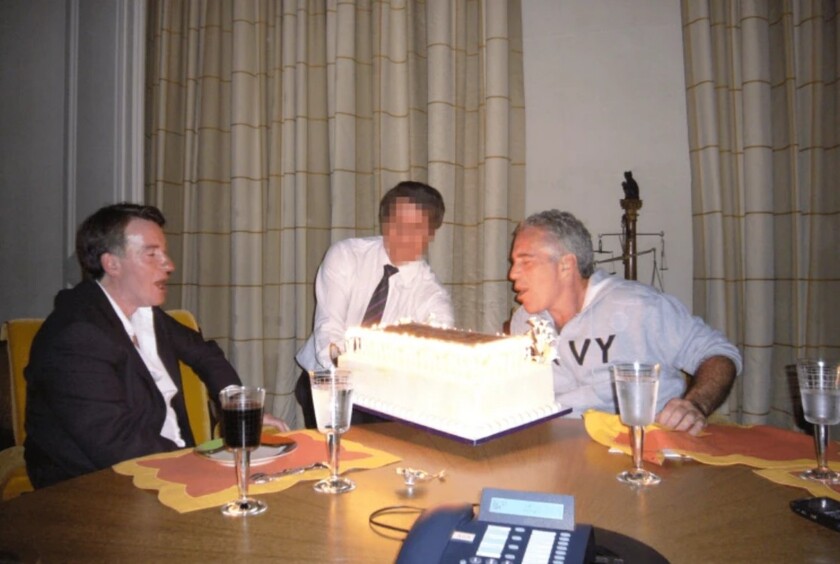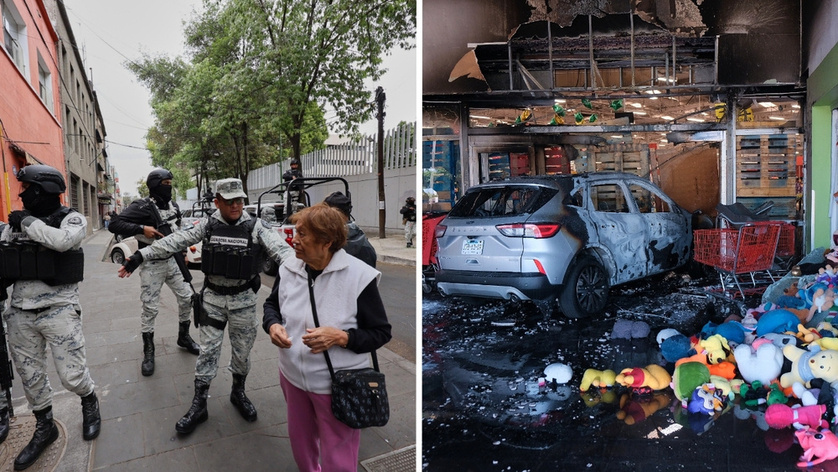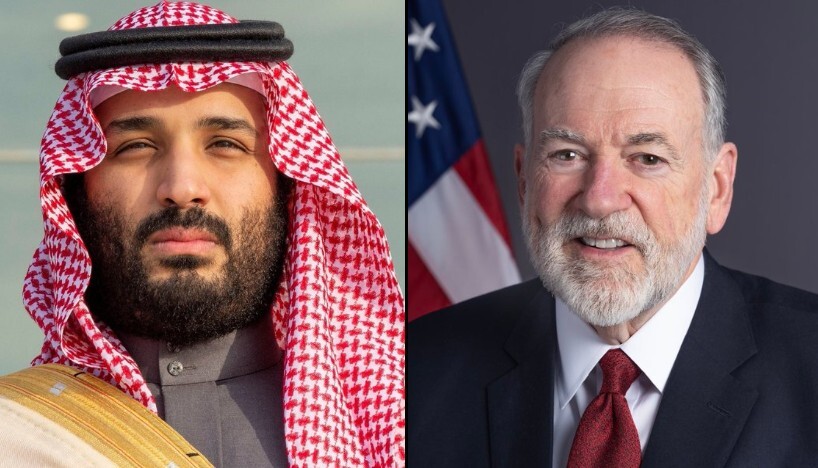President Donald Trump announced on Wednesday, that Israel and Hamas have both signed off on the first phase of his 20-point peace plan for Gaza, marking a significant breakthrough in the two-year conflict. The Israeli cabinet approved the agreement, late Thursday, to end the war and release hostages; and IDF troops will have 24 hours to pull back to the agreed upon lines.
The agreement, brokered during negotiations in Sharm el-Sheikh, Egypt, involves the release of all remaining hostages—20 believed to be alive and 28 whose bodies are being held—following an Israeli government approval of the ceasefire deal, after which the Israel Defense Forces (IDF) will withdraw to an agreed-upon line within 24 hours.
Trump stated this was the first step toward a "Strong, Durable, and Everlasting Peace" and emphasized that all parties would be treated fairly. U.S. is also reportedly sending 200 troops including Arab and possibly Turkish troops to help support and monitor the ceasefire.
While at a roundtable session at the White House Wednesday, with journalists discussing far-left Antifa violence and riots, Secretary of State Marco Rubio handed Trump a note telling him that a Middle East peace deal was “very close” and was awaiting Trump’s approval for “a Truth Social post.”
As Trump spoke to reporters, Rubio walked up to the president, whispered in his ear, and handed him a note.
“Very close. We need you to approve a Truth Social post soon so you can announce deal first,” the note read.
After being handed the note, Trump told reporters, “I was just given a note by the Secretary of State saying that we’re very close to a deal in the Middle East and they’re gonna need me pretty quickly.”
Just over an hour later, Trump published a Truth Social post announcing “that Israel and Hamas have both signed off on the first Phase of our Peace Plan.”
“This means that ALL of the Hostages will be released very soon, and Israel will withdraw their Troops to an agreed upon line as the first steps toward a Strong, Durable, and Everlasting Peace. All Parties will be treated fairly!” he wrote. “This is a GREAT Day for the Arab and Muslim World, Israel, all surrounding Nations, and the United States of America, and we thank the mediators from Qatar, Egypt, and Turkey, who worked with us to make this Historic and Unprecedented Event happen. BLESSED ARE THE PEACEMAKERS!”
Earlier on Wednesday, White House Press Secretary Karoline Leavitt announced that Trump was “considering going to the Middle East shortly” after his routine, annual medical checkup at Walter Reed Medical Center.
“I may go there sometime toward the end of the week, maybe on Sunday, actually, and we’ll see,” Trump told reporters. “But there’s a very good chance. Negotiations are going along very well. We’re dealing with Hamas and many of the countries. As you know, we have a Muslim, all of the Muslim countries are included. All of the Arab countries are included. Very rich countries and some that are not so rich, but just about everybody is included.”
The first phase of the deal, which has been confirmed by both Israel and Hamas, focuses on the immediate release of hostages and a partial Israeli troop withdrawal from Gaza Hamas has submitted a list of Palestinian prisoners to be released by Israel as part of the exchange.
Israeli Prime Minister Benjamin Netanyahu confirmed the agreement, calling it a "great day for Israel," and announced he would convene the Israeli government on Thursday, October 9, to ratify the deal.
The release of the hostages is expected to begin 72 hours after the Israeli cabinet's approval, with Trump indicating the release could start as early as Monday, October 13.
The negotiations, which began on October 6 in Egypt, involved U.S. envoy Steve Witkoff, Jared Kushner, Qatari Prime Minister Sheikh Mohammed bin Abdulrahman al-Thani, and Egyptian mediators. Trump expressed interest in traveling to the Middle East, possibly to the Gaza Strip, to oversee the process.
Trump had reportedly told advisers in recent weeks, he wanted to announce a deal by Oct. 7, the second anniversary of the Hamas terrorist attack on Israel that precipitated the war.
As the war in Gaza ground on — with more than 67,000 dead, declarations of famine, genocide, images of wounded children across social media, and the growing anti-Israel sentiments among his MAGA supporters — Trump reportedly grew frustrated and felt that Israel's reckless actions threaten his vision for a more interconnected Middle East which he began to implement in his first term with the Abraham Accords, that established relationships between Israel and several Arab nations.
The war’s intensity also presented an opportunity for Trump to coalesce regional powers around a peace plan to disarm Hamas, preclude Israel from seizing the West Bank and provide for the redevelopment of Gaza.
After months of negotiations with no result, a turning point came in September in the form of a surprise attack.
Israeli forces launched airstrikes on the Qatari capital, Doha, in an attempt to kill the leaders of Hamas. Six people were killed, including a member of Qatar’s internal security force.
Over the course of the war, Israel has struck in Iran, Lebanon, Syria and Yemen, in addition to Gaza.
But this was different. Qatar is a U.S. ally that hosts a strategic air base with 10,000 American troops. Trump and his team had come to view the Persian Gulf nation as a trusted partner in the negotiations between Israel and Hamas. The parents of an Israeli hostage had been in Doha that very morning, meeting Qatari Prime Minister Sheikh Mohammed bin Abdulrahman bin Jassim Al-Thani.
The bombing blindsided and angered the White House, as well as the Arab world.
Asked about the strikes at the time, Trump told reporters: “I was very unhappy about it. Very unhappy about every aspect.”
But instead of killing the prospect of a deal, the Israeli attack prompted Trump and his team to ratchet up pressure on Israeli Prime Minister Benjamin Netanyahu to bring the war to an end.
“It was the moment that Trump said, ‘Enough,’” said a former Israeli official, adding: “This deal, almost identical, has been on the table for over a year now. Netanyahu didn’t want to do it, but Trump left him no choice.”
“Both Netanyahu and Hamas tried to say ‘yes, but’ to stall, but Trump decided to hear only ‘yes’ and pushed them into the corner,” the former official said.
Shortly after the strikes, Trump issued a warning to Israel: He would not support the annexation of the West Bank, as some far-right members of Netanyahu’s Cabinet had proposed.
The Americans, the Qataris and other Arab governments saw the surprise strikes as an opportunity to exert leverage, according to an Arab official and former Israeli officials with knowledge of the diplomatic talks.
“It was a catalyst to bring pressure on the Israeli government, which had been the main obstacle to a deal,” the Arab official said.
The broader 20-point plan, unveiled by Trump last week, includes long-term provisions such as the disarmament of Hamas fighters, the establishment of a technocratic governance body for Gaza, and the entry of humanitarian aid. However, these complex issues remain to be negotiated and are not part of the first phase.
The war, which began with Hamas's October 7, 2023, attack on Israel that killed 1,200 people and took 251 hostages, has resulted in over 67,000 Palestinian deaths in Gaza, according to the Gaza Ministry of Health. The conflict has triggered widespread regional instability and global condemnation, with United Nations alleging Israel’s actions constitute genocide, a claim Israel denies.
This marks the third ceasefire agreement since the war began, though previous deals collapsed after partial implementation. The current agreement is seen as a major diplomatic achievement by Trump, with both sides expressing cautious optimism, though procedural details and full implementation remain uncertain.
"One day, perhaps the entire story will be told about the events of yesterday," Rubio said during a cabinet meeting Thursday with Trump and other secretaries at the White House. "Suffice it to say, it's not an exaggeration that NONE of it would have been possible without the President of the United States being involved.
"Perhaps the stories will be told, perhaps they will never be told, the president had some extraordinary phone calls and meetings that required a high degree of intensity and commitment and made this happen.
"It really took a turn less than a couple weeks ago, when we were at the United Nations and you convened a historic meeting, not simply of Arab countries, but of Muslim majority countries from around the world, including Indonesia was there, Pakistan was there, and created this coalition behind this.
"I don't know of any American president in the modern era that could have made this possible."
Co-Director Alliance For Two States Gershon Baskin wrote on X, an unconfirmed account of his participation in the negotiations:
A first short note on some thoughts this morning.
This is definitely a morning for celebration. The war is ending. The killing and destruction will stop. The Israeli hostages will be coming home – the living and the deceased. For Palestinians, there will be celebrations with the release of Palestinian prisoners and detainees from Gaza. Israelis and Palestinians will be able to breathe again.
First, we all have to thank President Trump and his emissary Steve Witkoff, and of course Jared Kushner, who helped to put the full court press on Israel and on Hamas. Trump and Witkoff made sure that the Qatari Prime Minister, the Egyptian Minister of Intelligence, and the Turkish head of Intelligence were all together for the final push. This was a brilliant move. Trump locked Netanyahu into the agreement and the Qataris, Egyptians and Turks locked Hamas into the agreement.
There are still details that we don’t know but what is important is that this agreement is a declaration of the end of the war – not a temporary ceasefire. There are guarantees that the war will not be renewed once Hamas releases all of the hostages. We don’t know the exact details of those guarantees – I had made some suggestions to the US and Hamas negotiators, but I don’t know at this time what has been concluded. We also don’t know for sure the names of the Palestinian prisoners who will be released and what are the terms of their release.
What we should know is that this deal could have done a long time ago. Hamas agreed to all of the same terms in September 2024 in what became known as the “Three Weeks Deal” that I had received in writing and voice message in Arabic and in English. But at that point the response of the Israeli negotiators was that “the Prime Minister did not agree to end the war”. Even though the “Three Week Deal” proposal landed on the desk of President Biden, his person in charge, Bret McGurk, refused to sway from the bad deal that he was negotiating. I met with members of the American negotiating team in October 2024 and they were as frustrated as I was in their inability to convince Biden and Biden’s people to look seriously at the deal on the table.
The Qataris invited me to Doha in October 2024 and I presented to them the deal that Hamas agreed to, which they were fully aware of but they said without the American adoption of the plan, nothing could be done, because the obstacle was Israel, not Hamas. That is the same message I received from the Egyptian intelligence – Hamas was ready for a deal to release all of the hostages, not to govern Gaza and longer and to end the war. But Israel was not ready. On December 26, 2024 I met with Ronen Bar in his office in the Shin Bet headquarters. In that meeting, three weeks before Trump entered the White House, I was requested not to use my back channels, because “in three weeks there will be a ceasefire deal.”
Trump told Netanyahu that he wants a ceasefire before he enters the White House, and Ronen Bar knew it would happen and it did on January 19, 2025. To me it was clear that President Biden projected American weakness while President Trump projects American power. From that moment, on December 26, 2024 it was clear to me that the only way that the war would come to an end is when President Trump makes the decision that it has to end. From that time, my primary efforts were to communicated with Steve Witkoff and find a way of working a back channel between the American side and Hamas – knowing that the negotiation did not have to be directly with the Israeli side.
The Israeli side would accept whatever Trump forced them to accept. In December 2024, Samer Sinijlawi heard that Witkoff would be speaking at a Bitcoin conference in Abu Dhabi. He suggested that we invest the money to go there and to stakeout Witkoff in order to make first contact. We did that and we managed to speak with him, exchange cards and we gave him an article that Samer and I authored together. That investment paid off completely.
Jumping ahead – after hours of working the back channel, on September 8, 2025 Hamas received from the Qatari Prime Minister the American proposal that I assisted in drafting together with Hamas negotiators. I was on the telephone with the American side at the same hour that the Qataris were presenting to Hamas the final American proposal at 10:00 pm on September 8. I was told by the American side that Hamas planned to spend September 9 discussing the proposal and getting clarifications from the Americans, through me and the Qataris on issues such as the lines of the Israeli withdrawal, the nature of the guarantees that the war would not be renewed when Hamas releases all of the hostages.
Then Israel bombed the home of Khalil al Haya and that phase of the negotiations ended. On September 10 one of the Hamas negotiators contacted me and said that the whole leadership survived the attacked and that the Qataris had instructed them to not go out and not to use their telephones at all. Hamas was convinced that the attack could not have happened without the agreement of Trump. Despite the American denials, Hamas no longer trusted that Trump and the Americans were working in good faith.
The proposed American guarantees were no longer relevant. I was requested by the Americans to tell the Hamas leadership that the Americans had nothing to do with the attack and that the US and President Trump were still committed to reaching an agreement to end the war.
Hamas’s messages to me were that they had no faith in the Americans because Israel could not have attacked in Doha without the American agreement. On September 10 at 1:22 am Witkoff sent me the following message: “We had zero to do with this. They (the Israelis) have apologized to us. Their statement confirms this. And the President’s Truth Social post attests to it.”
During the period between the Israeli attack in Doha and September 19, I was working on ways to get back to the point where we were negotiating the end of the war, with all of the details. Hamas was in a paralysis mode and did not know what to do or how to get back to talks about ending the war.
On September 19, in the late evening Witkoff called me and said “we have a plan”. We had a long conversation and I supported what the Americans were planning and I made a few suggestions on how to get Hamas on board. I was requested to convince the Hamas leadership that Trump was serious and wants the war to end. Throughout the last months I have been in contact with 8 members of the Hamas leadership outside of Gaza. Three of them engaged with me in discussions. I did not make suggestions regarding the Israeli side because for over a year I believed that if President Trump decides that the war has to end, Trump will force Netanyahu into the agreement. That is exactly what happened.
What we don’t know still is a lot of very important information. I have been in discussions regarding all of the issues, but I was not in Sharm el Sheikh and I don’t know what has been decided and what still needs to be decided. But the most important thing at this time is the declaration by both sides that the war is over and it will not be renewed. The hostages and prisoners will be freed in the coming days. Israel will begin to withdraw.
Regarding the Hamas weapons, the discussions and proposals were that Hamas would turn over their weapons (those that have the ability to kill a number of people at the same time – not necessarily every rifle) to a new Palestinian security force, perhaps together with Egyptian support. Hamas would not surrender its weapons to Israel, but they could to a Palestinian security force. I don’t know what has been decided.
The new government in Gaza – this has to be a Palestinian government and not a neo-colonial mechanism which the Palestinians do not control. The names of independent Gazans with a public profile have been given to the Americans and also to other international and Arab players involved with the day after and the reconstruction of Gaza. The names that Samer Sinijlawi and I submitted to these important players were Gazan civil society leaders that we met with several times on zoom. They drafted a letter and signed it to President Trump that I delivered to Witkoff for the President stating that they were willing to play a role in the governance of Gaza. We don’t know how this new government will be formed and when it will take over. Hamas agreed from the outset to this kind of government, even from last year. We don’t know if Mahmoud Abbas will ask Dr. Nasser Elkidwa to play a role in the governance of Gaza – something that he has said that he is ready to do.
We don’t know which Palestinian prisoners will be freed in the deal and where they will be freed to. The option of freeing those who are considered by Israel to be the most dangerous to be deported may have been agreed to – we don’t know yet. I spent a lot of time and efforts to provide the Americans with information about Marwan Barghouthi. I sent the opinions of about 20 very important Israelis to the Americans about their opinion – most were in favor of releasing Barghouthi – but some very significant Israelis were opposed. Those who were in favor spoke about the positive role that Barghouthi could play in moving the conflict toward a renewed peace process. Those who were opposed believed that Barghouthi would not play that role.
In conclusion of these first thoughts: President Trump deserves the Nobel Peace Prize. Steve Witkoff is a deal maker and without Witkoff none of this would have happened. Witkoff speaks for the President and everyone knows it. Jared Kusher’s role at this point was crucial because in the near future Ron Dermer will be working for Kushner and not for Netanyahu. Bringing Kushner to the final round of negotiations was a brilliant move to neutralize Dermer’s defined role of foiling every chance of ending the war. The Turkish head of Intelligence is very close to Witkoff and to Hamas and the Turkish intensive role was crucial in putting the pressure on Hamas to agree to the deal and not to walk away from the table.
At 2:00 am all of the participants in the negotiations entered a large room with tables and chairs set up in a square. The Israeli delegation sat directly across from the Hamas delegation. This was the first time in history that official Israelis and officials from Hamas sat in the same room. The deal was signed and now we have to wait for its full implementations. And now we can begin to breathe again.















